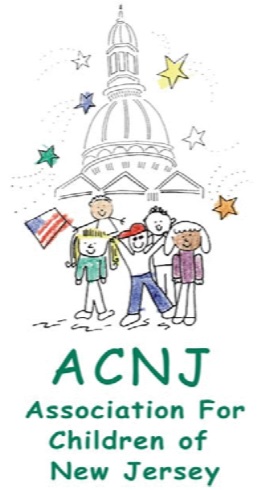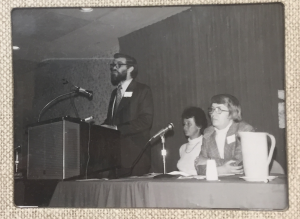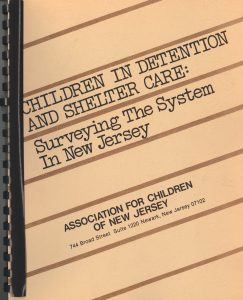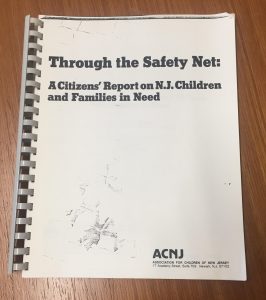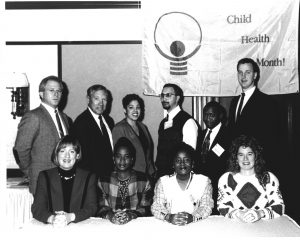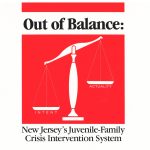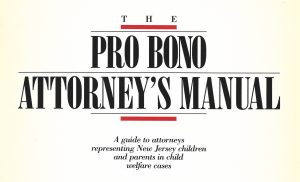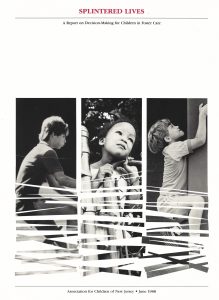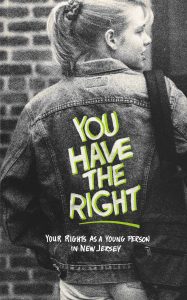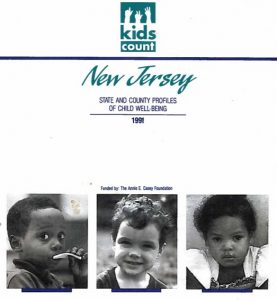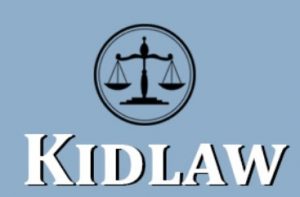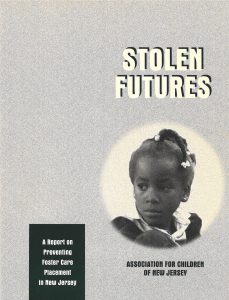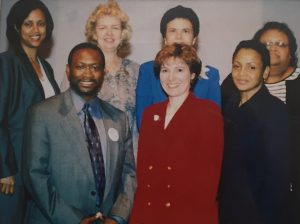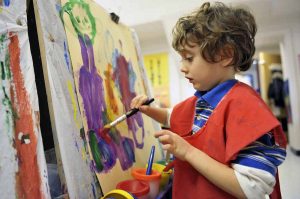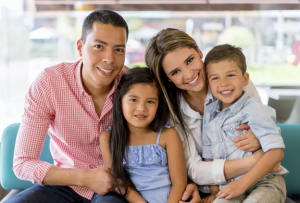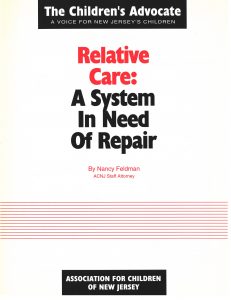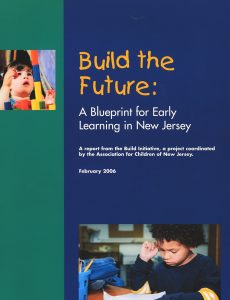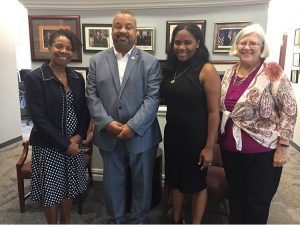Join ACNJ for a walk down memory lane
-
Our Roots in Protecting Children
ACNJ grew out of some of the earliest efforts in New Jersey to protect abused and abandoned children and is part of an evolution that began in 1847, when the Newark Orphan Asylum was established. Other organizations in our history included the Protestant Foster Home Society, Boys Lodging Home and the Home for the Friendless.
-
ACNJ is Born, A Voice for New Jersey Children
Over the years, other organizations emerged to care for orphans, children living in foster care and children in troubled families. In 1978, two of those groups – the Citizens Committee for Children and Child Service Association – merged to form the Association for Children of New Jersey. By becoming a voice for children in the political landscape, they aimed to have a broader impact on all New Jersey children. (The name changed in July 2010).
The following are notable legislation, reports, policies and programs resulting from ACNJ’s efforts. Notable accomplishments are designated with a star.
-
The Child Placement Review Act is passed
New Jersey passes the Child Placement Review Act, requiring an independent review of cases involving children living in foster care. New Jersey is the second state to mandate reviews.
-
ACNJ makes recommendations on system improvements for NJ children in detention and shelter centers
The report “Children in Detention and Shelter Care: Surveying the System in New Jersey” takes a close look at children placed in 42 NJ detention facilities, juveniles in need of supervision (JINS) shelters, and children's shelters.
-
Child Care Center Licensing Act is passed
New Jersey was the first state to set standards for child care centers. This Act allows for the licensure of certain public and private child care centers, and the inspection and examination of the centers to ensure they are up to code.
-
Through The Safety Net: A Citizen’s Report On N.J. Children And Families In Need released
This report highlighted the struggles of thousands of parents trying to provide basic needs for food, shelter, clothing and medical care for their children through interviews and state statistics. Though the report does not contain recommendations, “The facts in this report, we believe, speak for themselves.”
-
Juvenile Justice Code is revised
Juvenile Justice Code is revised, allowing an array of dispositions for youth. ACNJ, its board and trained volunteers assess the outcomes of youth served through surveys and interviews leading to this reform.
-
New Jersey passes the Family Day Care Registration Act
New Jersey was the first state to set standards for people providing child care in their homes. This Act was meant “to provide for the protection of children through the... [voluntary] registration of family day care providers and making an appropriation....”
-
Coalition emerges to promote health and safety among children
For 25 years, ACNJ leads the Child Health Month Committee, providing resources and training thousands of teachers, nurses and other professionals to develop fun interactive activities that help children learn and internalize health and safety behaviors.
-
State establishes Catastrophic Illness in Children Relief Fund
This fund is a financial assistance program that helps New Jersey families struggling to pay medical bills for children with a catastrophic illness or condition, acute or chronic, that are not fully covered by insurance, state, federal programs, or other sources.
-
"Out of Balance" is released
“Out of Balance” is a three-year study into the effectiveness of the state’s Juvenile-Family Crisis Intervention System, which reveals a conspicuous gap between the intent of the 1984 Juvenile Code and its actual implementation.
-
Publication of the Pro Bono Attorney's Manual
ACNJ recruits and trains attorneys to represent parents and kids in termination of parental rights cases.
-
Report leads to a federal award
Splintered Lives reveals the barriers to adoption for children in foster care, leads to system reform, and wins the Department of Health and Human Services’ Private Sector Award.
-
Initial publication of “You Have the Right! Your Rights as a Young Person in New Jersey”
Last updated in 2001, more than 50,000 copies have been distributed.
-
First annual “NJ Kids Count” report is published
“NJ Kids Count” became ACNJ’s signature publication and has been later supplemented by Kids Count reports on counties and the state’s largest cities. These reports are the go-to source for data on children and families.
-
Helping to reduce preventable childhood injuries
Bike Helmet Law is passed, making NJ the first state in the nation to require bicycle helmets for children under the age of 14, helping to reduce bike-related fatalities by 60% in five years. In 1998, the law was extended to include children under 17 years and expanded to include skateboards and roller skates.
-
The Child Placement Bill of Rights becomes state law
The Child Placement Bill of Rights becomes state law, establishing independent rights for children in foster hearings.
-
A free resource center for families is established
The Children’s Legal Resource Center, now called KidLaw, is established, providing information on children and the law. This resource has helped thousands of individuals, provided trainings and distributed over 100,000 guides on special education, foster care and kinship care.
-
“Stolen Futures” is published
This report documents 115 cases from six Division of Youth and Family Services (DYFS) offices.
-
ACNJ launches the Community Orientation Course
For a period of 12 years, ACNJ runs community orientation courses in Newark, Camden and Trenton, training over 200 residents to be advocates for children in their communities and jobs and crafting lifelong relationships through the courses.
-
Addressing childhood lead poisoning in the state
NJ passed a law directing that every doctor, nurse practitioner, and health care facility in the state must screen for lead poisoning all children under the age of 6 who come to them for their health care.
-
1996

The Juvenile Justice Commission is created
Juvenile Justice Commission is created, and ACNJ Board President Margaret McLeod is appointed to the advisory group to oversee JCC.
-
“The Court Assessment Project – Final Report” helps to enact improvements in the court system
Court Assessment Project—Final Report is an assessment of the quality and timeliness of court decision-making processes in child welfare cases. This brings about improvements in the court system and is used to make recommendations for incoming federal court improvement funds.
-
1997
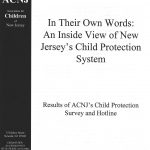
In Their Own Words is released
ACNJ releases survey results asking whether New Jersey’s children are being protected. This helps raise public awareness of system deficiencies.
-
The beginning of Abbott preschool in New Jersey
ACNJ forms and leads the Early Care and Education Coalition to identify the components of high-quality preschool programs. ACNJ participates as friend of the court (amicus curiae) in the NJ Supreme Court Abbott v Burke case that mandates public preschool in 31 of NJ’s neediest districts.
-
1998

Providing health insurance to low-income families
NJ KidCare is created, using federal dollars to provide health insurance for children in households where income exceeded the Medicaid level. Before, more than half a millions kids lived without health coverage - now New Jersey has fewer than 71,000 children without health insurance.
-
NJ Supreme Court mandates quality standards
The NJ Supreme Court (Abbott VI) preschool decision mandates the Early Learning Coalition’s recommendations to achieve quality set for by ACNJ as amicus curiae.
-
State Earned Income Tax Credit Act is enacted
The Earned Income Tax Credit (EITC) is a federal and state tax benefit for individuals and families who earn low-to moderate incomes in NJ. It is a tax credit that may reduce the amount of taxes one owes, or provide qualifying individuals with a refund.
-
New Jersey Family Care Act expands free- and low-cost insurance to low-income families
New Jersey passes the New Jersey Family Care Act, which expands NJ KidCare to include free and low-cost insurances to working poor families. 100,000 children obtain insurance coverage as a result.
-
2000
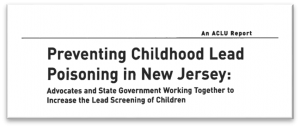
Working to increase lead screenings
ACNJ works in partnership with the American Civil Liberties Union of New Jersey, child care centers and others to increase lead screenings.
-
2000
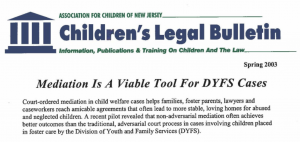
Helping Kids involved in child welfare cases
ACNJ helps introduce mediation into child welfare cases.
-
2001
New Jersey passes the child safety seat belt law
Child Safety Seat Belt law passed.
-
The importance of kinship care is recognized
New Jersey establishes the Kinship Legal Guardianship law, officially acknowledging the importance of relative caregivers and their need for assistance.
-
Focus on building and sustaining state early care and education system
ACNJ joins and helps lead the national BUILD Initiative, working to establish connections between state systems that support the education and care of young children and their families.
-
“DYFS in Crisis: A Series of Policy Briefs” informs the public and policymakers
In the wake of the tragic death of Faheem Williams, a 7-year-old boy from Newark who was known to DYFS and died while in the care of a relative, ACNJ acted as a resource of information and a voice for change. “DYFS in Crisis: A Series of Policy Briefs” helped guide ongoing reforms.
-
2004
New Jersey expands preschool
New Jersey Gov. James McGreevey provides additional funding in FY2005 to expand preschool to more than half of New Jersey’s 4-year-olds. The program is called the Early Launch to Learning Initiative (ELLI).
-
ACNJ publishes “I Can Make It!”, a guide for older foster youth
The publication was followed by legal guides on special education, guardianship, the court process and foster families.
-
“Child Protection Data Report” tracks the state’s progress in reforming the child welfare system
A second report was issued in 2007.
-
Special report examines administration of medication to children in child care programs
This report initiated training to help improve the practice.
-
2006
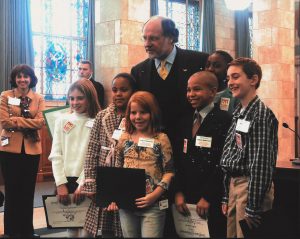
Getting NJ talking about kids
500 children send letters telling former Governor Corzine what he should do for children through ACNJ’s Picture the Future essay contest.
-
Ensuring quality teachers in public preschools
The College Transfer law is enacted, requiring seamless credits transfers for students moving from 2-year to 4- year public colleges. While the law assists all students, community-based Abbott preschool teachers benefit because they are required to have a BA degree.
-
State approves expansion of full-day, state-funded preschool to all children from low-income families
While this was a major milestone, the new school funding formula was never fully funded and only four school districts received state funding to provide universal preschool.
-
ACNJ is at the forefront of an effort to enroll more children in NJ FamilyCare
ACNJ leads a task force in examining how to get more children who are eligible for NJ FamilyCare to enroll and how to keep them in the program.
-
2008
The School Funding Reform Act passes
The School Funding Reform Act passes, paving the way for preschool expansion.
-
2009
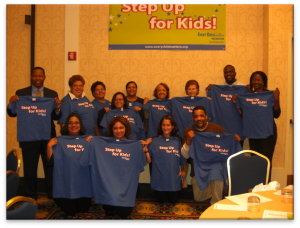
Step Up For Kids gets gubernatorial candidates talking about children
The Step Up For Kids forum gave the candidates for NJ governor the opportunity to express their views on children’s issues.
-
2010

Helping more children have access to healthy breakfasts
ACNJ works with Hunger-Free New Jersey to create the NJ Food For Thought Campaign to increase the number of eligible children eating breakfast at school. From ranking nearly last in the nation in school breakfast participation, now more than 228,000 students have access to a healthy, morning meal. On average, 100,000 more children eat breakfast each day - an increase of 81 percent - since the start of the school breakfast campaign, and school districts will have more than doubled the federal dollars they receive to provide breakfast, from $47.5 million in FY2011 to an estimated $110 million in FY2019.
-
2011
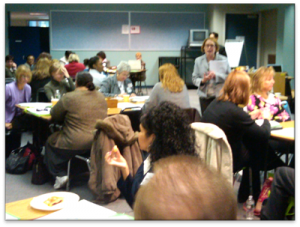
Leadership training provides administrators skills to become effective leaders
The NJ Department of Education, NJ Principals and Supervisors Association and ACNJ collaborate to implement a Pre-K to 3rd Grade Leadership Training Series, providing more than 500 school administrators with the skills necessary to be effective early childhood school leaders.
-
2012
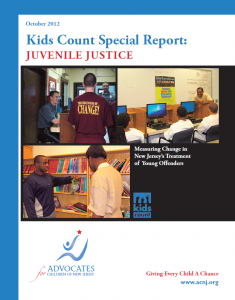
Kids Count Special Report—Juvenile Justice is released
The number of juveniles who land in jail had dropped dramatically, saving millions in taxpayer dollars, while maintaining public safety and putting more youth on a path to productive adulthood, according to the report.
-
2012
The Littlest Victims is released
The Littlest Victims: Protecting Babies from Abuse and Neglect examines policy and practice for young children under the care of the state child protection system.
-
2013
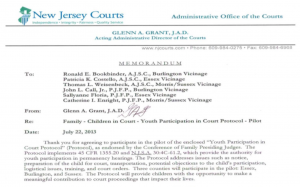
More foster youth involved in court hearings
As a member of the NJ Children in Court Improvement Committee, ACNJ works to increase the participation of foster youth in their court hearings.
-
2014
ACNJ addresses educational rights of youth involved in the justice system
ACNJ brings together a group to examine the educational rights of a child as he or she moves through different stages of the juvenile justice system. These discussions lead the NJ Council on Juvenile Justice System Improvement to create a school/justice partnership committee.
-
2015
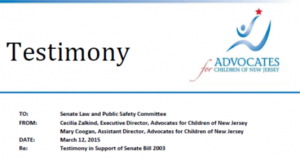
Smart reforms to the juvenile justice system signed into law
The new law raises the minimum age at which judges can "waive" juvenile offenders into the adult system to 15, narrows the list of offenses that can lead to prosecution as an adult, allows offenders to remain in juvenile custody until age 21, ends solitary confinement as a punishment and restricts the duration when it is used as a safety measure. The law also requires the collection of much-needed data.
-
2015
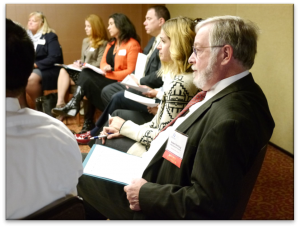
Working together to help at-risk students avoid the school to prison pipeline
Over 350 members of the law enforcement, education and court communities convene to identify ways they can work together to prevent school discipline issues from landing youth in court and in the juvenile justice system.
-
2015
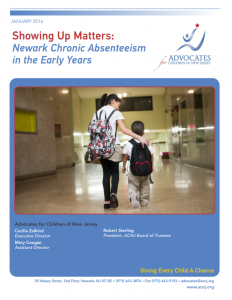
ACNJ zeroes in on chronic absenteeism in public schools
ACNJ collects 2013–14 attendance and absentee data for Pre-K through 3rd grade students from Newark Public Schools and charter schools. A series of focus groups with parents, teachers, schools administration and staff allows for a deeper look into the causes and potential solutions of chronic absenteeism. In the second state report on chronic absenteeism, findings show that 216 school districts have at least 10 percent of their K-12 students chronically absent, accounting for more than 90,000 kids. “Chronically absent” is defined as missing 10 percent or more of the school year, or about 18 days of instruction, including excused and unexcused absences.
-
2017
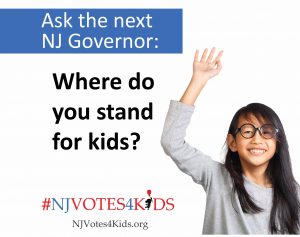
Reminding candidates #NJVotes4Kids
The election campaign asks gubernatorial and legislative candidates where they stand on child care, preschool expansion, lead poisoning prevention and children in poverty
-
2017
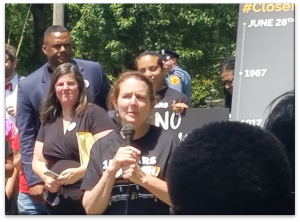
Governor Chris Christie announces closing youth prisons
Former Governor Chris Christie announces the closing of Jamesburg, the state’s largest youth prison for boys, and Hayes, New Jersey’s youth prison for girls.
-
2017
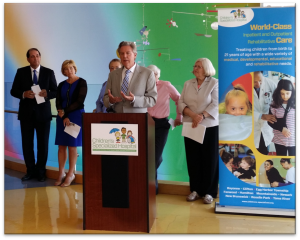
CHIP funding is reauthorized
Advocates from across the state and nation, including ACNJ, urge Congress to reauthorize funding for the Children’s Health Insurance Program (CHIP), which helps to fund NJ FamilyCare; CHIP is reauthorized and funded until 2023.
-
2017
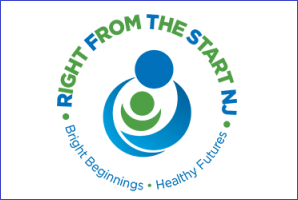
It’s time to make babies a priority in New Jersey
ACNJ partnered with The Nicholson Foundation, the Turrell Fund and the Caucus Educational Fund to launch the Right From The Start NJ Campaign, a public awareness and advocacy effort putting birth-to-3 on the public agenda.
-
2018
Breakfast After The Bell is passed
New Jersey mandates “Breakfast After the Bell” in schools with 70% or more of students are eligible for free or reduced priced meals.
-
2018
“The cutest Statehouse rally ever.”
ACNJ holds the state’s first-ever rally with babies, Strolling Thunder™ New Jersey, where over 100 babies, along with parents and advocates, tell politicians it’s time to Think Babies™.
-
Teaching others how to lead the way for children
ACNJ’s Early Learning team holds early childhood advocacy workshops across the state, providing nearly 100 adults with the skills necessary in becoming more effective child advocates.
-
2018
New law helps curb chronic absenteeism in public schools
ACNJ directly influences the passage of New Jersey’s chronic absenteeism law, which requires all schools to collect, monitor and report on their attendance data. Schools with 10 percent or more of their students missing too many days are now required to develop action plans to improve attendance.
-
2018
After ten years, the state provides the funding for preschool expansion
The FY2019 state budget includes $83 million to support existing public preschools and expand New Jersey’s nationally recognized early education model to tens of thousands of children.
-
2018
As a result of ACNJ efforts, New Jersey makes a significant increase for child care in more than a decade
DHS directs $38 million in federal dollars to expand child care funding, helping to increase the child care subsidy rate for all ages, with the highest increase for infants.
-
2019
ACNJ is awarded the Pritzker Children’s Initiative grant
The grant empowers ACNJ to continue our statewide prenatal-to-3 advocacy agenda, with a focus on coordinating early childhood systems and developing sustainable financing strategies in early care and education.
-
2019
Over 2,000 empowered to advocate for children in New Jersey
In 2019, 1,400 early childhood champions were engaged in direct advocacy, 500 parents/caregivers and professionals received information and assistance regarding the legal rights of children, 500 stakeholders participated in regional forums on improving child welfare in the 21st century, sponsored by ACNJ and the New Jersey Department of Children and Families, and 252 parents, caregivers and advocates were trained on education law and advocacy.
-
2020

Senate President Steve Sweeney speaks at the South Jersey Kids Count forum
The gathering of more than 100 community advocates discusses the latest data surrounding children in the Garden State.
-
2020
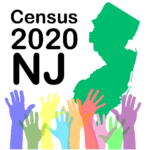
Children across the state are counted in the 2020 Census
ACNJ, in partnership with organizations across New Jersey, encourage families to not forget the baby when filling out their 2020 Census forms. Data report that New Jersey is home to over 2,000,000 children.
-
2020
Roadmap detailing how to expand services to 27,000 more infants and toddlers is released
The report Unlocking Potential, funded by the Pritzker Initiative, explores how to reach more families and give all children a strong, equitable start in life.
-
2020
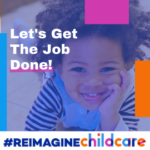
#ReimagineChildCare is launched
The #ReimagineChildCare campaign brings together communities, policymakers, business leaders and advocates to highlight the need for affordable, high-quality child care in New Jersey.
-
2021
New Jersey is the 2nd state to implement universal home visiting
This law allows for families to receive assistance from a nurse within two weeks of their child's birth. Creating an infrastructure for universal home visiting was one of the key goals in ACNJ's Unlocking Potential prenatal-to-three plan.
-
2022
Governor signs Thriving by Three Act into law
This legislation will bring long-awaited relief to some parents who need child care for their babies to return to work, help providers struggling to find staff to care for infants and toddlers who need care and be key to New Jersey's economic recovery.

